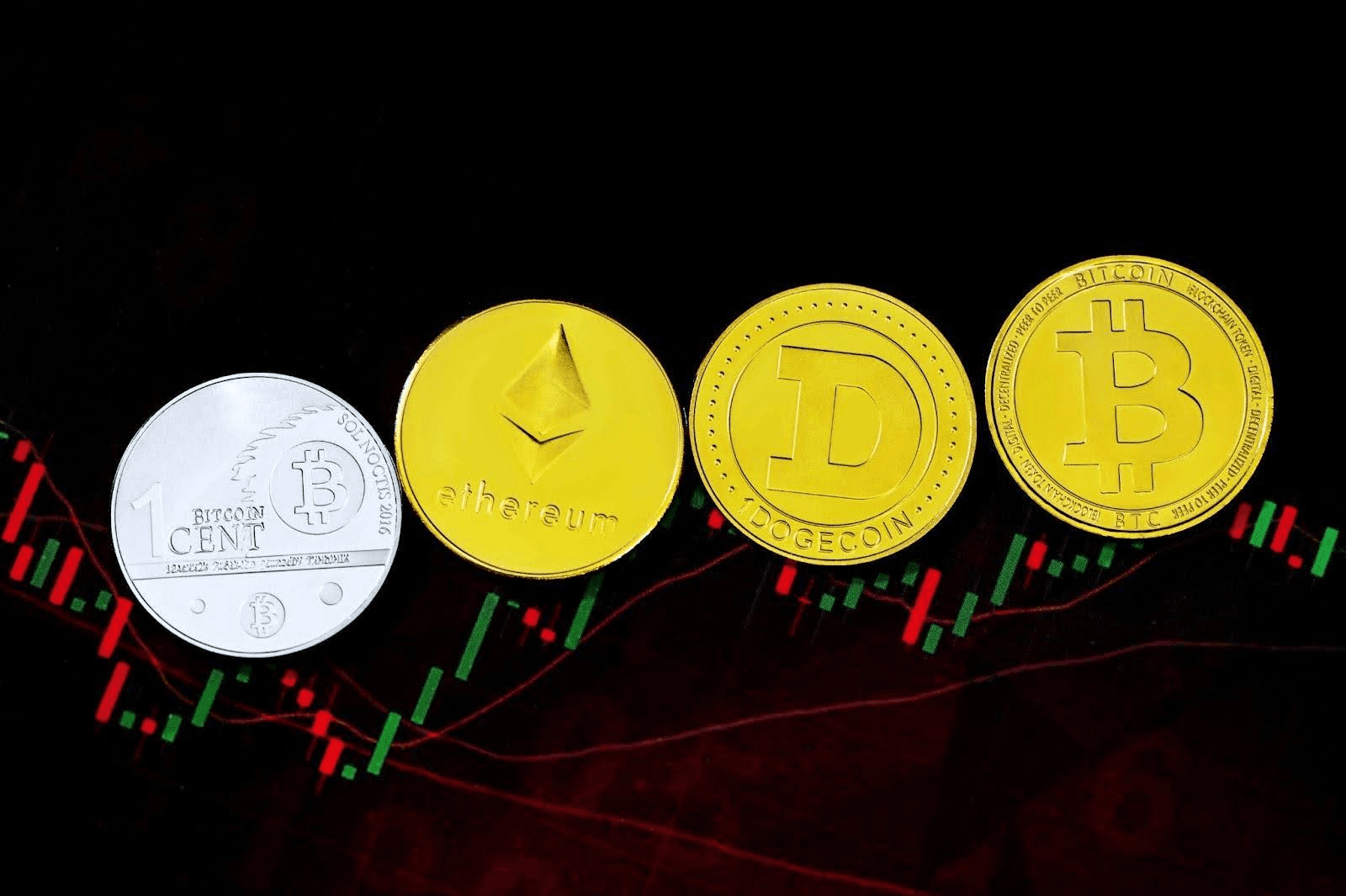7 Major Challenges for New Crypto Investors in Early 2025

The cryptocurrency landscape in early 2025 presents opportunities and obstacles for new investors. Despite growing interest in digital assets, the market continues to face volatility, regulatory uncertainty, and technological complexities. Understanding these challenges is crucial for anyone considering entering the crypto space in this rapidly evolving environment.
1. Market Volatility
One of the most significant challenges for new crypto investors is the inherent volatility of the market. While cryptocurrencies have demonstrated the potential for significant gains, they are also known for dramatic price fluctuations. In early 2025, namely in February 2025, Bitcoin experienced its largest monthly loss since June 2022, decreasing by 17.5%, highlighting the high volatility in cryptocurrency markets.
For new investors, this volatility can lead to anxiety, impulsive decisions, and potentially large financial losses. It is common for prices to skyrocket, only to experience steep declines within a short period. In particular, altcoins—cryptocurrencies that are not Bitcoin or Ethereum—are often more volatile and subject to price manipulation. On the other hand, away from such high-end names lie the fresh newcomers and upstart cryptos. Getting in early and choosing from a list of crypto presales lets you get in at rock-bottom prices and could potentially translate into attractive profits once the token hits the general market.
While it is possible to profit from volatility, understanding how to manage risks and avoid emotional trading is essential for navigating these fluctuations. Without a clear strategy, new investors may find themselves swept up in market hysteria, making decisions that do not align with their long-term goals.
2. Regulatory Uncertainty
Regulation is one of the most pressing concerns for new crypto investors in 2025. Governments worldwide are still in the process of developing comprehensive frameworks for cryptocurrency, and the regulatory environment remains fragmented. President Donald Trump's proposed creation of a national cryptocurrency reserve faced challenges due to unclear funding sources and bipartisan pushback, underscoring the evolving regulatory landscape.
For new investors, the lack of clear regulation can be unsettling. They may worry about sudden policy shifts or the possibility of regulations that could severely impact their holdings. The decentralized nature of cryptocurrencies complicates the regulatory process, as it’s difficult to regulate a digital asset that exists outside the control of a single entity. Furthermore, regulatory uncertainty often leads to market instability, as changes in law can cause rapid price fluctuations.
3. Security Risks
Security is another major concern for new crypto investors, as the decentralized nature of the market leaves investors more vulnerable to fraud and theft. Unlike traditional financial systems, which have multiple layers of protection, the crypto space often lacks sufficient safeguards, especially for beginners. Scams and hacks continue to proliferate, with fraudsters using increasingly sophisticated tactics to exploit naive investors.
Phishing attacks, Ponzi schemes, and fake Initial Coin Offerings (ICOs) remain prevalent, making it essential for new investors to exercise caution when selecting exchanges, wallets, and investment opportunities. Hackers regularly target exchanges and wallets in attempts to steal funds, and because transactions on the blockchain are irreversible, it is difficult to recover stolen assets. This increases the risk for newcomers who may not be aware of the potential threats or how to secure their holdings properly.
The growing number of decentralized finance (DeFi) platforms and blockchain-based protocols adds another layer of complexity. While these innovations provide new opportunities, they also increase the risk of loss due to smart contract vulnerabilities, lack of audit trails, and other security gaps. New investors may find themselves unwittingly exposed to scams or hacks that they did not anticipate when they first entered the market. Learning how to spot red flags, perform due diligence, and implement robust security practices is critical to minimizing these risks.
4. Lack of Knowledge and Education
The steep learning curve is another challenge for newcomers in the cryptocurrency space. With thousands of different cryptocurrencies, each with its own unique features and underlying technologies, it can be overwhelming for new investors to grasp the fundamentals. We can see an example with Melania's Trump "Melania's Vision" NFT collection. There was some controversy around it when a meme coin called "Melania Trump Coin" emerged in her name. The coin, which appeared to be created without her involvement or endorsement, gained attention on social media, with many questioning its legitimacy. Despite the buzz, there's no official connection between Melania Trump and the meme coin, and it seems to be part of the broader trend of celebrity names being used for digital assets.
Without a solid understanding of blockchain technology, the principles of decentralization, and how to evaluate different cryptocurrencies, new investors are at risk of making uninformed decisions. They may be swayed by hype or misinformation rather than sound analysis, leading to poor investment choices. Moreover, many beginners struggle to differentiate between legitimate projects and speculative, high-risk assets. The difficulty in evaluating these new projects can result in investing in unreliable or even fraudulent schemes.

5. Liquidity and Market Depth
Liquidity is another challenge that can hinder new investors in early 2025. While major cryptocurrencies like Bitcoin and Ethereum enjoy relatively high liquidity, many altcoins and smaller digital assets do not. Low liquidity can make it difficult to enter or exit positions without significantly impacting the price, especially for investors looking to make larger trades.
In some cases, investors may find themselves unable to sell an asset at a desirable price, as a lack of market depth leads to price slippage. This can be especially frustrating for new investors who are used to the more liquid markets of traditional finance. Additionally, some lesser-known cryptocurrencies may have limited trading pairs, further reducing liquidity options.
Understanding how liquidity works and choosing assets with sufficient trading volume is important for mitigating this risk. For new investors, it is essential to evaluate both the liquidity and the overall health of the market before investing in a particular asset. Investing in highly liquid markets provides greater flexibility and reduces the chances of being stuck in a trade that is hard to exit.
6. Emotional Decision-Making and Herd Mentality
Psychological factors play a significant role in crypto investing, particularly for those who are new to the market. The fear of missing out on crypto (FOMO) and the fear, uncertainty, and doubt (FUD) associated with major market moves can drive irrational decision-making. When prices are soaring, new investors may rush to buy without conducting proper research, driven by the fear that they might miss out on potential gains.
Conversely, when prices crash, they may panic sell, only to realize later that they sold at the bottom. In many cases, new investors may fall prey to herd mentality, following the actions of others rather than making independent, informed decisions. This can lead to buying into overhyped projects or exiting investments prematurely due to fear.
7. Taxation and Compliance
Navigating the complex world of cryptocurrency taxation is another challenge for new investors. While some countries have established clear tax policies for cryptocurrency transactions, others have yet to finalize their regulations. As of 2025, many new investors are still unaware of the tax implications of trading, staking, or earning yield through crypto investments. The fast-paced nature of cryptocurrency developments, including new regulations and market shifts, can overwhelm new investors, making it challenging to stay informed and make educated decisions
The UK's Financial Conduct Authority's ban on crypto derivatives for retail investors has led to debates about its impact on consumer choice and market competitiveness. New investors may not realize that their cryptocurrency transactions, including buying, selling, and earning rewards, could be subject to capital gains tax or other forms of taxation. Many people also fail to report their crypto earnings, assuming they are outside the scope of taxation, only to face problems when they file their taxes.
Conclusion
In early 2025, new crypto investors face several challenges, including market volatility, regulatory uncertainty, security risks, and a steep learning curve. By understanding these obstacles and approaching the market with caution and education, investors can better navigate the complexities of cryptocurrency and position themselves for long-term success.










